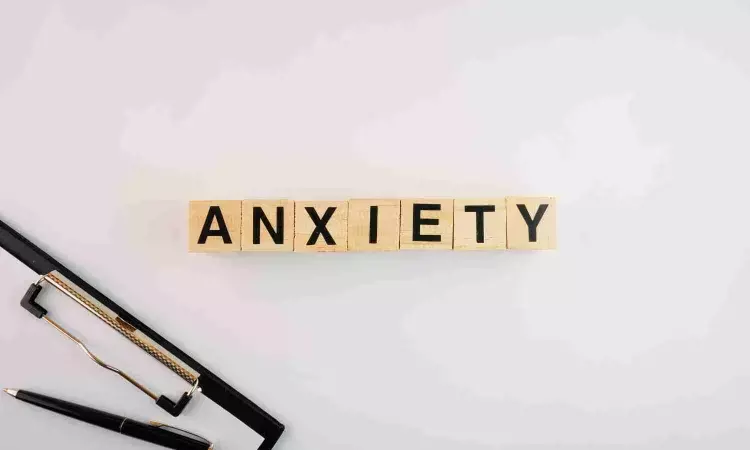- Home
- Medical news & Guidelines
- Anesthesiology
- Cardiology and CTVS
- Critical Care
- Dentistry
- Dermatology
- Diabetes and Endocrinology
- ENT
- Gastroenterology
- Medicine
- Nephrology
- Neurology
- Obstretics-Gynaecology
- Oncology
- Ophthalmology
- Orthopaedics
- Pediatrics-Neonatology
- Psychiatry
- Pulmonology
- Radiology
- Surgery
- Urology
- Laboratory Medicine
- Diet
- Nursing
- Paramedical
- Physiotherapy
- Health news
- Fact Check
- Bone Health Fact Check
- Brain Health Fact Check
- Cancer Related Fact Check
- Child Care Fact Check
- Dental and oral health fact check
- Diabetes and metabolic health fact check
- Diet and Nutrition Fact Check
- Eye and ENT Care Fact Check
- Fitness fact check
- Gut health fact check
- Heart health fact check
- Kidney health fact check
- Medical education fact check
- Men's health fact check
- Respiratory fact check
- Skin and hair care fact check
- Vaccine and Immunization fact check
- Women's health fact check
- AYUSH
- State News
- Andaman and Nicobar Islands
- Andhra Pradesh
- Arunachal Pradesh
- Assam
- Bihar
- Chandigarh
- Chattisgarh
- Dadra and Nagar Haveli
- Daman and Diu
- Delhi
- Goa
- Gujarat
- Haryana
- Himachal Pradesh
- Jammu & Kashmir
- Jharkhand
- Karnataka
- Kerala
- Ladakh
- Lakshadweep
- Madhya Pradesh
- Maharashtra
- Manipur
- Meghalaya
- Mizoram
- Nagaland
- Odisha
- Puducherry
- Punjab
- Rajasthan
- Sikkim
- Tamil Nadu
- Telangana
- Tripura
- Uttar Pradesh
- Uttrakhand
- West Bengal
- Medical Education
- Industry
Research spotlight: Anxiety and depression are important risk factors for dangerous deep vein blood clots

Rachel Rosovsky, MD, MPH, director of Thrombosis Research and co-chair of the Thrombosis Committee at Massachusetts General Hospital and an associate professor of Medicine at Harvard Medical School, is lead author of a new study in the American Journal of Hematology; Anxiety and Depression Are Associated With Heightened Risk of Incident Deep Vein Thrombosis: Mediation Through Stress-Related Neural Mechanisms.
Ahmed Tawakol, MD, a physician investigator in the Division of Cardiology at Mass General and an associate professor of Medicine at Harvard Medical School, is senior author of the study.
What Question Were You Investigating with This Study?
Deep vein thrombosis (DVT) is a serious condition in which a blood clot forms in a deep vein in your body. We wanted to learn more about the association between anxiety and depression and DVT and understand the potential mechanisms behind this association.
What Were the Results?
Using a large clinical biobank of over 100,000 participants, we observed that an existing history of anxiety disorder and/or depression significantly elevated the risk of incident DVT.
We also found that anxiety disorders and/or depression may increase DVT risk through heightened activation of stress-related pathways.
We observed that increased stress neural activity, increased systemic inflammation, and impaired autonomic nervous system function mediated the effect of both anxiety disorders and depression on DVT, even after robust adjustments.
Based on our findings, anxiety disorders and depression should be viewed as important and independent risk factors for DVT, and our findings invite further investigation into whether behavioral and pharmacological strategies to treat anxiety disorders and depression can attenuate this risk.
What are the Clinical Implications and Next Steps?
Given the link between anxiety disorders, depression, stress-related neural activity (SNA), and the subsequent development of DVT, future studies should investigate the impact of reducing SNA on this pathway.
Specifically, future studies could test whether targeting SNA with interventions that may reduce SNA (i.e., exercise and stress reduction techniques) will reduce the risk of incident DVT and even the risk recurrent DVT.
Reference:
Rachel P. Rosovsky, Kenechukwu Mezue, Charbel Gharios, Giovanni Civieri, Alexander Cardeiro, Hadil Zureigat, Hui Chong Lau, Roger K. Pitman, Lisa Shin, Shady Abohashem, Michael T. Osborne, Farouc A. Jaffer, Ahmed Tawakol, Anxiety and depression are associated with heightened risk of incident deep vein thrombosis: Mediation through stress-related neural mechanisms, American Journal of Hematology, https://doi.org/10.1002/ajh.27427.
Dr Kamal Kant Kohli-MBBS, DTCD- a chest specialist with more than 30 years of practice and a flair for writing clinical articles, Dr Kamal Kant Kohli joined Medical Dialogues as a Chief Editor of Medical News. Besides writing articles, as an editor, he proofreads and verifies all the medical content published on Medical Dialogues including those coming from journals, studies,medical conferences,guidelines etc. Email: drkohli@medicaldialogues.in. Contact no. 011-43720751


